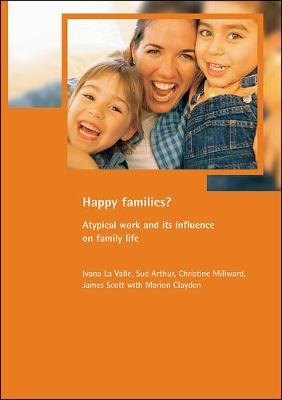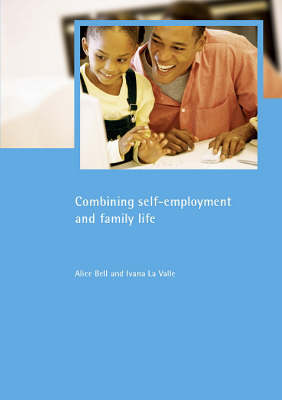Family and Work
2 total works
Happy Families?
by Ivana La Valle, Sue Arthur, Christine Millwood, and Et Al
Published 25 September 2002
Parents work in an increasingly deregulated labour market - often at what have traditionally been regarded as "family times", such as Sundays. While parental work at atypical times is increasing, we know very little about its nature, how atypical working arrangements come about and their impact on family life. This report addresses these key issues and explores the implications of the growth in atypical working hours for employment and childcare policies. Drawing on a large-scale, nationally representative study, the report: assesses the frequency and extent of atypical working; examines how family activities are affected by parents working atypical hours; explores the effects of atypical working on children; and asks whether parents in lower socioeconomic groups feel more constrained to work atypical hours than those in professional jobs. The results suggest that the potential business benefits of limiting regulations on working times and hours need to be considered alongside the costs to families.
Despite the increasing policy interest in work-life balance issues, relatively little research has been carried out into the links between self-employment and family life. This report considers, for the first time, the extent to which new family-friendly initiatives and legislation provide adequate support for self-employed parents.
Drawing on an analysis of survey material from 10,000 families with children, the report explores topical issues such as:
whether self-employment offers working parents greater flexibility than other forms of employment
the price of flexibility
difficulties in relation to childcare
differences between the experiences of self-employed mothers and fathers
Drawing on an analysis of survey material from 10,000 families with children, the report explores topical issues such as:
whether self-employment offers working parents greater flexibility than other forms of employment
the price of flexibility
difficulties in relation to childcare
differences between the experiences of self-employed mothers and fathers

